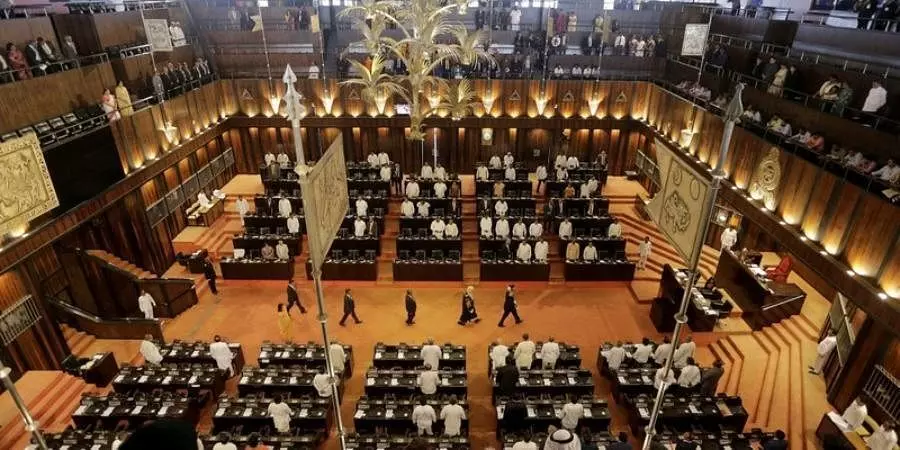
For the first time since 1978, Sri Lanka's president to be elected by Parliament
text_fieldsCOLOMBO: Following the resignation of Gotabaya Rajapaksa, the president of Sri Lanka who was ousted due to widespread protests against him, the presidential election will be held for the first time since 1978 by the parliament. The next president would be chosen by a secret ballot of Sri Lankan MPs, rather than by popular vote.
Speaker Mahinda Yapa Abeywardena announced on Friday that the 225-member parliament will elect a new president by secret ballot on July 20. Parliament has not voted to elect a president in presidential history since 1978.
Presidential elections of 1982, 1988, 1994, 1999, 2005, 2010, 2015 and 2019 were by popular vote.
President Ranasinghe Premadasa was assassinated in 1993, and the presidency was vacated in the interim, the only time the post was vacant mid-term. Parliament unanimously approved DB Wijetunga to continue Premadasa's tenure. The new president will serve the remainder of Gotabaya Rajapaksa's term until November 2024.
Ranil Wickremesinghe will be the leading player in next week's race.
The 73-year-old became prime minister in May, taking on the job of managing an unprecedented financial crisis. His United National Party (UNP) lost the 2020 parliamentary elections.
For the first time since 1977, Wickremesinghe failed to win a seat. At the end of 2021, he entered parliament through the single seat allotted to the party based on the cumulative national vote.
While he may be unpopular and hated for his pro-Western policies and ways, he still enjoys acceptance as a forward-looking thinker and strategist.
As the island nation faces its worst economic crisis since independence, he is widely regarded as someone capable of leading the island through the turmoil.
Wickremesinghe, who always wanted to be the president, lost two presidential elections in 1999 and 2005.
Wickremesinghe does not have his parliamentary numbers and will have to depend on the ruling Sri Lanka Podujana Peramuna (SLPP) member vote.
Their support is not predetermined as the SLPP is ideologically opposed to him.
The next main challenger could be Chief Opposition Leader Sajith Premadasa. The 55-year-old was an understudy of Wickremesinghe and was the one who turned the tables on his former leader. His newly formed SJB has ousted Wickremesinghe's old party from all its strongholds to emerge as the main opposition in 2020.
Ironically, his failure to fill the power vacuum in mid-May paved the way for Wickremesinghe to become prime minister from nowhere. He has only an outside chance as most ruling SLPP members are unlikely to support him. Unlike Wickremesinghe, he starts the race with at least 50 votes.
Dullas Alahapperuma, 63, from the breakaway group of the ruling SLPP. Is another contender.
A former Minister of Information and Mass Media and a former newspaper columnist, he is considered a left-leaning political theorist. He has held ministerial posts since 2005 and is known for his clean public life. His task too would be uphill given his position as a breakaway member.
Army commander Field Marshal Sarath Fonseka, 71, who won a military battle with the LTTE, who fought the army in an attempt to establish a separate Tamil hike land in the north and east, is a likely candidate.
Fonseka has the support of the Sinhala Buddhist majority. He comes across as the only politician unopposed by the broad mass of protesters who led to Rajapaksa's downfall. However, he will enter the fray only if his leader Premadasa withdraws from the race.
With PTI inputs






















